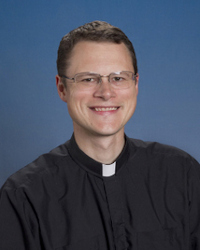- Home
-
About
 Fidelity & Excellence
Fidelity & ExcellenceThomas Aquinas College is unique among American colleges and universities, offering a faithfully Catholic education comprised entirely of the Great Books and classroom discussions.
-
A Liberating Education
 Truth Matters
Truth MattersTruth, and nothing less, sets men free; and because truth is both natural and supernatural, the College’s curriculum aims at both natural and divine wisdom.
-
A Catholic Life
 Under the Light of Faith
Under the Light of FaithThe intellectual tradition and moral teachings of the Catholic Church infuse the whole life of Thomas Aquinas College, illuminating the curriculum and the community alike.
-
Admission & Aid
 Is TAC Right for You?
Is TAC Right for You?Do you enjoy grappling with complex questions? Are you willing to engage in discussions about difficult concepts, with the truth as your ultimate goal?
-
Students & Parents
 Mind, Body & Spirit
Mind, Body & SpiritThere is always something to do at TAC — something worthwhile, something fulfilling, and something geared toward ever-greater spiritual and intellectual growth.
-
Alumni & Careers
 What Can You Do with a Liberal Education?
What Can You Do with a Liberal Education?Nothing speaks more to the versatility of the College’s academic program than the good that our alumni are doing throughout the Church and the world.
- Search
- Giving
Alumnus Priest Becomes Pastor of Three Fargo Parishes

“In late spring of this year, Fr. Peter Sharpe received a phone call from The Most Reverend John Folda, Bishop of the Fargo Diocese, explaining that Fr. Jerome Hunkler was about to retire and asking if he would be willing to take his place. Leaving a congregation one has come to know and love is never an easy thing, but Fr. Peter answered with a resolute ‘yes.’”
So writes the South Steele Ozone and Kidder County Press about a Thomas Aquinas College alumnus, Rev. Peter Sharpe (’04), who now serves as pastor at three parishes in the Diocese of Fargo: St. Mary’s, St. Paul’s, and St. Francis de Sales. “As a priest, I have found I can’t fix people, nor is it my job, but the Lord can and does change lives,” Fr. Sharpe tells reporter Maria Wanchic. “If we’re patient enough, we’ll see what good plans God has in store for us.”
After graduating from the College in 2004, Fr. Sharpe entered Fargo’s Diocesan Seminary Program, spending one year at Cardinal Muench Seminary in Fargo and four years at Mt. St. Mary’s Seminary in Maryland. Before taking on his new, three-parish responsibilities this fall, he served for seven years as a pastor in Velva and Karlsruhe, North Dakota.
In addition to his pastoral duties, Fr. Sharpe wrote an article earlier this year for the diocesan website, Why are non-Catholic but baptized Christians not to receive the Eucharist? — a topic he later took up in diocesan podcast.
“When you say ‘Amen’ and receive Communion at Mass, you are publicly declaring that you believe all that the Catholic Church teaches and believes,” Fr. Sharpe explained. “Further, you are acknowledging that you are trying to live as the Catholic Church expects. So if you don’t believe all that the Catholic Church believes or aren’t living according to her standards, when you receive Communion, it would be like you are publicly saying a lie, which, of course, you wouldn’t want to do.”
The word “amen,” offered before reception of Holy Communion, is too often underappreciated, he adds, especially by Catholics, who say it so frequently that they can easily lose sight of its import. “When you say that ‘amen’ to those words, ‘the Body of Christ,’ that means something,” Fr. Sharpe implores. “Words mean something, and this ‘amen’ means something.”
So, too, do the words mea culpa, mea culpa, mea maxima culpa.
“I am a sinner, who has already publicly declared that a little earlier in the Mass,” says Fr. Sharpe of the Confiteor. “But I’m also believing that God’s power has changed my life, and I want it to continue to change my life.”

